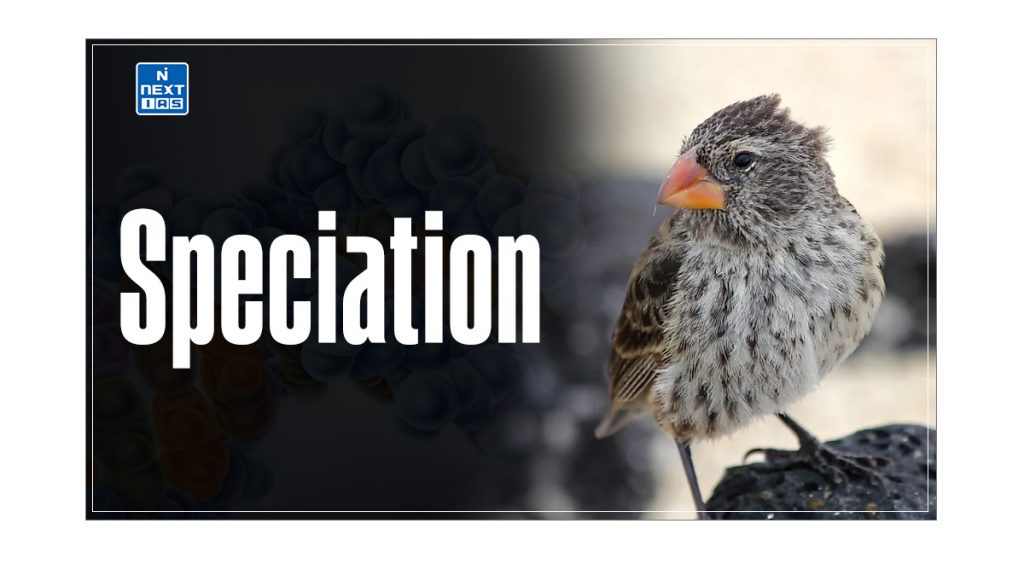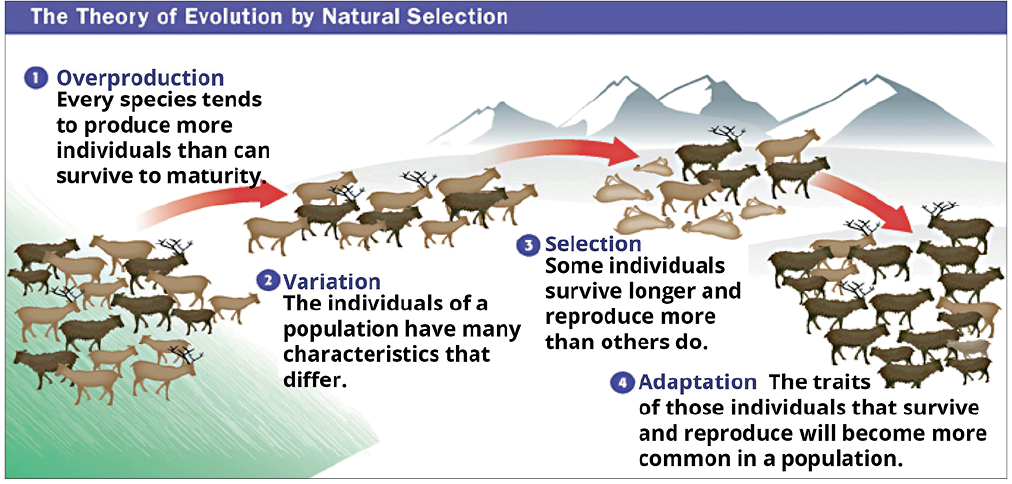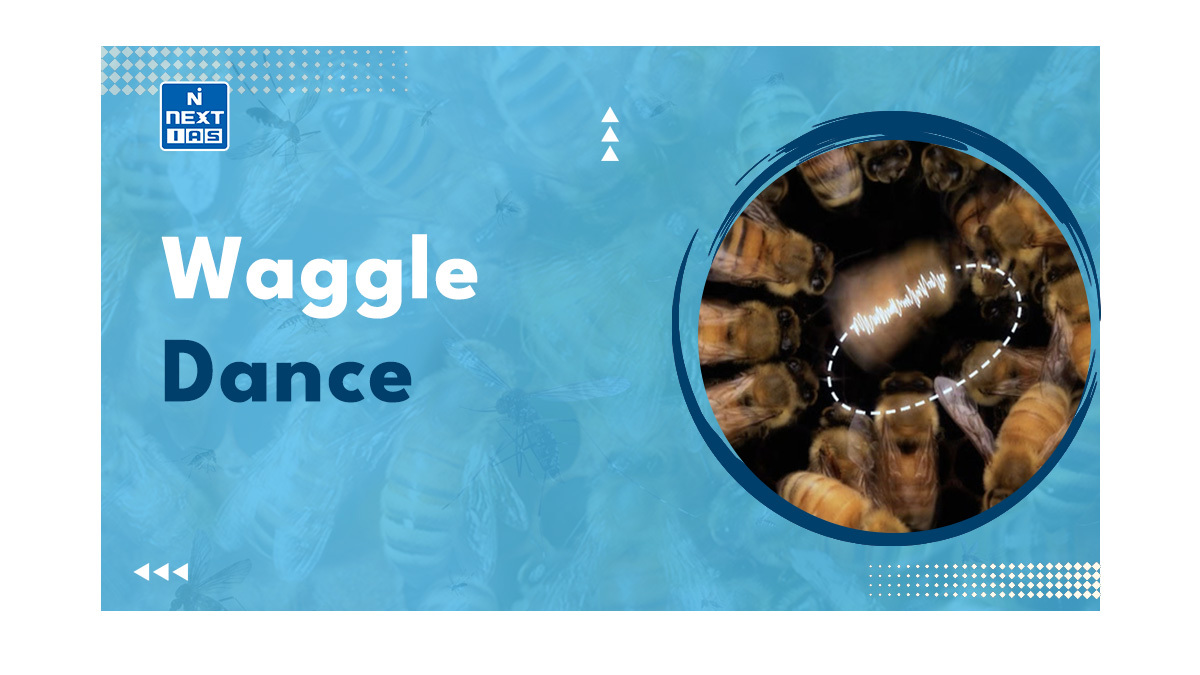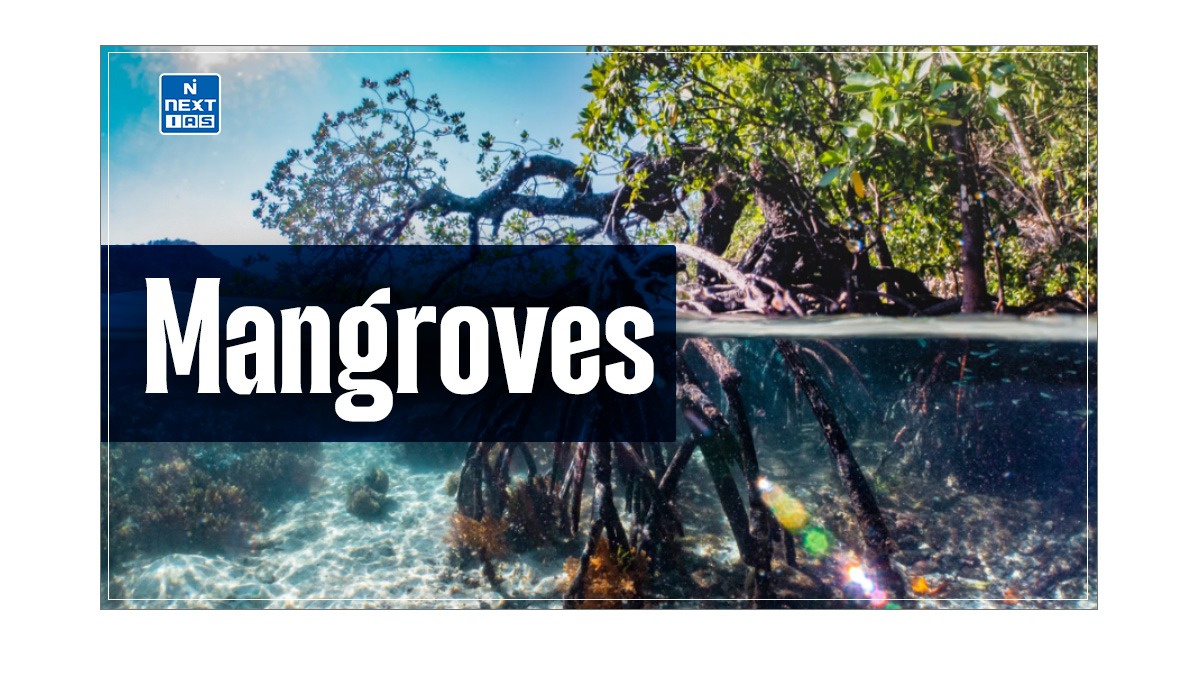
Speciation is a complex and dynamic process that underscores the diversity and adaptability of life on the earth. Understanding the mechanisms and factors that drive it is important to comprehend biological evolution and the intricate relationships within ecosystems. This article aims to study in detail the concept of speciation, its mechanisms, types, and other related concepts.
What is Speciation?
- Speciation is the evolutionary process through which new biological species develop.
- In other words, it is the process of formation of new species.
- This process is fundamental to biodiversity, driving the variety of life forms on Earth.
| A Species is defined as; “a group of similar populations of organisms whose members are capable of interbreeding and producing fertile offspring (children)”. Read our detailed article on Basic Concepts of Environment and Ecology. |
Factors Promoting Speciation
- Speciation occurs when a subgroup within a species becomes isolated from the rest and evolves distinct traits of its own.
- Various processes which facilitate evolution of new species can be seen as follows.
Natural Selection
- Natural selection is the process or mechanism through which populations of living organisms adapt and evolve.
- Organisms that are better adapted to their environments are more likely to survive and reproduce as compared to those that are less adapted.
- Individuals in a population exhibit natural variations, meaning that they are different from each other in some ways.
- This means that some individuals have traits better suited to the environment than others.
Competition
- If a new resource, such as a new food source, becomes available to a population, some part of the population may become specialized in obtaining that resource.
- In time, there is a chance that the population will become totally different from the original population.
Isolation
- The most common way a population undergoes speciation is by isolation.
- Some kind of barrier develops between two populations of a species, which ultimately leads to the formation of a new species.
- Various types of isolation that support evolution of new species are as follows:
Geographical Isolation
Geographical isolation occurs when a physical barrier, such as a mountain, ocean, river, etc, develops between two populations of a species.
Ecological Isolation
It is caused by differences in temperature, humidity, pH, etc. in the environment of the two populations.
Reproductive Isolation
It is caused by interference in interbreeding between members of different populations of species.
Mutation
- It is a sudden change in the genetic makeup of an organism that becomes a potent factor for evolution of new species.
- It takes place randomly in isolated populations giving rise to new variations within each sub-population of these mutations.
- The variations that help to adapt to the environment are reproduced in greater numbers in the next generation due to natural selection.
Genetic Drift
- It describes random fluctuations in the number of gene variants in a population.
- Genetic drift takes place when the number of variant forms of a gene, known as alleles, increases and decreases by chance over time.
- These variations in the number of alleles present are measured as changes in allele frequencies.
Hybridisation
- It occurs when two divergent lineages (e.g. species) with independent evolutionary histories come into contact and interbreed.
- Hybridization can result in evolution of new species when hybrid populations become isolated from the parental lineages, leading to divergence from the parent populations.
Polyploidy
- It is a heritable condition wherein an individual possesses more than two complete sets of chromosomes.
- Polyploids are common among plants and certain groups of fish and amphibians.
- For instance, some salamanders, frogs and leeches are polyploids.
- This method of evolution of new species is almost instantaneous, happening in a single generation.
Recombination-Speciation
It can be viewed as the evolution of restrictions on the freedom of genetic recombination wherein new combinations of alleles can be generated within species, but alleles from different species cannot be brought together.
Extinction
- Extinction refers to the process of disappearance of a population or species.
- Extinction happens when species are unable to evolve quickly enough to adapt to the changes in their environment.
- Many species have gone extinct during the geological history of the earth.
- Extinction may take place due to catastrophic natural phenomena such as tsunamis, volcanoes etc.
- In recent times, human activities such as deforestation, over exploitation, environmental pollution and environmental change are other factors responsible for extinction.
Intraspecies Variation
- The differences in the colour of skin, types of hair, eye colour, and blood type among different ethnic groups represent variation within the human species.
- Similarly, different shapes and sizes of plants and animals are examples of variation within each organism.
- For Example, In plants, different varieties of various shapes and sizes exhibit variation among the same plant species.
- Competition and natural selection determine as to which variation will help the organism survive and succeed.
- Variations that help a species survive in the struggle for existence are encouraged and promoted.
Evolution
- Charles Darwin and Alfred Wallace put forward a valid theory of evolution in 1859.
- This theory has been extended in the light of latest developmengts in genetics and is known as Neo-Darwinism.

Conclusion
Speciation is the fundamental concept in biology that explains the diversity of life on Earth. It is essential for biodiversity, life adaptation and the creation of new ecological niches. The process of evolution of new species is ongoing, and new species are constantly evolving.
Frequently Asked Question (FAQ)
Who is the father of speciation?
Ernst Mayr is known as the father of speciation. He made significant contributions to the modern understanding of the process of evolution of new species, particularly with his work on the biological species concept.






